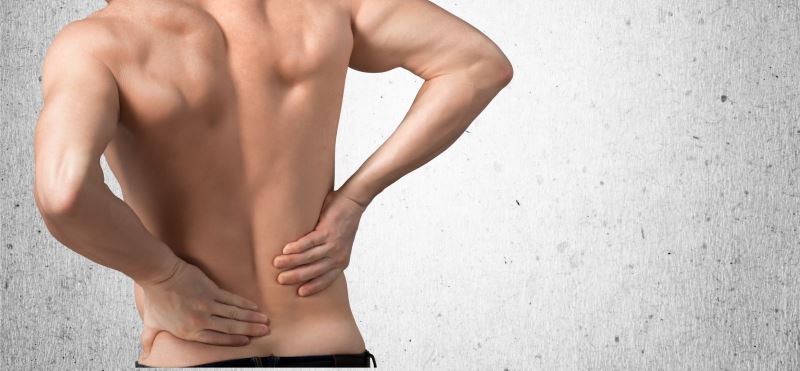3 Reasons Why Your Spine Is Stiff
Category: Spine | Author: Stefano Sinicropi

Stiffness is your spine is rather common, especially as we age. It can range from mildly annoying to very problematic, but thankfully there are a number of things you can do to help alleviate back stiffness on your own. Today, we take a closer look at three reasons why you’re suffering from spine stiffness, and we share a couple ways to prevent or treat stiffness based on those causes.
Why Is My Back Stiff?
Back stiffness is usually caused by a couple of different issues in the back, each of which can be brought upon by certain activities or inactivity. For example, spinal stiffness usually has a root cause of muscle tightness, a muscle spasm or lumbar arthritis. Here’s a look at three things in your daily life that contribute to these causes, and what you can do to prevent them.
Inactivity
We’ll lead with the most obvious cause of muscle stiffness. As we explained above, back stiffness can be caused by muscle tightness or muscle spasms, both of which set in when the muscles aren’t being worked and healthy blood can’t flow through the structures as easily. That’s why a lot of people experience a stiff back in the morning or after sitting at their desk for hours on end. Obviously the best way to combat a stiff back caused by inactivity is to get moving, so find time to exercise each day. If you can’t get a full workout in, opt for a simple 5-10 minute stretching routine that will aid in blood flow and take spinal muscles out of a relaxed state, which will help prevent muscle spasms and tightness. Exercise is also great for keeping symptoms of spinal arthritis at bay – another cause of back stiffness.
Poor Seated Position
Your back can also develop stiffness because you are stressing and straining muscles with poor body posture. We’ve shared some tips for keeping your spine healthy while at the office on the blog before, so swing over to that post to learn some ways to keep it injury-free. If you have poor seated posture, not only will it make it harder for healthy blood to flow through the spinal structures, but you’re also unknowingly straining muscles, which can contribute to spasms and tightness. Sit up straight with your head directly above your shoulders when you’re at your desk, and be mindful of your spine when you’re looking down at your phone, as straining your neck can lead to neck and upper back stiffness.
Disc Problems
If you’ve strained your back over the years, there’s a chance that one or more of the discs in your spinal column have shifted out of place, which can contribute to pain and sitffness. A small movement can result in a bulging disc, which can impact nerves and muscles around the disc, or a major shift can lead to painful disc herniation. Keeping your discs healthy is similar to the above techniques mentioned above. Find time to exercise to strengthen structures in your spine, practice proper posture techniques when sitting, lifting heavy objects or playing sports, and let your body warm up before activity by stretching. If you know you’re already dealing with a disc issue, visit a spinal specialist to learn about your specific options, like personalized physical therapy or a minimally invasive surgical operation. If you take care of the disc, you can get rid of back stiffness.
For more information about preventing spine stiffness, contact Dr. Sinicropi today.